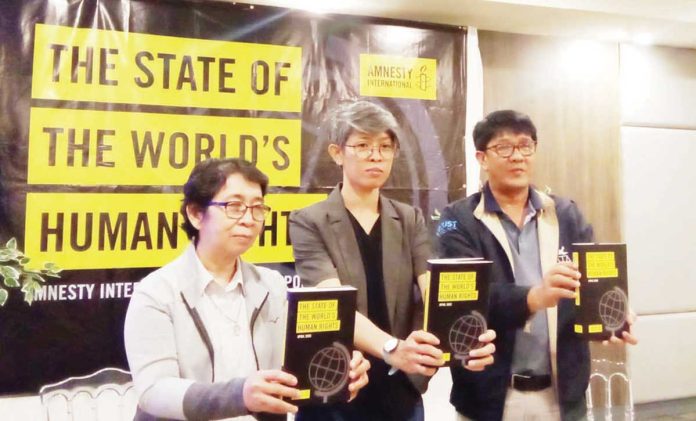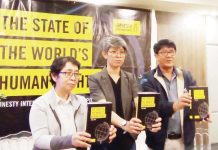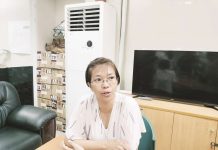
ILOILO City – The Commission on Human Rights (CHR) in Region 6 has raised alarm over the growing number of online sexual exploitation cases involving minors and youth in Western Visayas, and further warning that marginalized sectors remain the most susceptible to human rights violations.
In a joint press briefing with Amnesty International on May 23, CHR-6 director Atty. Jonnie Dabuco said the emergence of technology-driven abuses — particularly online sex scandals and artificial intelligence-generated deepfake pornography — has created new fronts in the battle for human rights protection in the region.
He noted that many of these incidents involve students and young adults, especially those in remote schools where internet access is available but government support is scarce.
“Cases involving sex scandal videos and threats of exposure are rising. With limited government response, particularly in far-flung provinces, victims are struggling to seek help. Some even need to travel to regional offices,” said Lorena Navallasca, executive director of PROCESS Foundation-Panay, a non-governmental organization working to empower grassroots and marginalized communities in Panay Island.
Dabuco further emphasized that marginalized groups — urban poor, elderly, persons with disabilities (PWDs), and persons deprived of liberty (PDLs) — are at higher risk of abuse due to their lack of empowerment and limited access to resources.
“The less empowered people are, the greater the chance of them becoming victims of human rights violations,” he said.
CHR-6 called on parents to be proactive in guiding their children, especially in the digital age, citing Republic Act No. 11930, or the Anti-Online Sexual Abuse or Exploitation of Children (OSAEC) and Anti-Child Sexual Abuse or Exploitation Materials (CSAEM) Act, which criminalizes online sexual exploitation.
“Parents should supervise their children, including those over 18. They should be made aware of online risks and the dangers of certain websites,” Dabuco added.
While CHR-6 acknowledged a decline in reported cases of civil and political rights violations — such as red-tagging and alleged extrajudicial killings — compared to 2020 and 2021, it stressed that online human rights violations remain harder to monitor and are rapidly increasing.
“The shift to digital platforms has made violations more complex. Our monitoring tools and capacities must adapt to this evolving landscape,” said Dabuco.
The CHR assured the public that it continues to investigate alleged abuses, recommend legal action where warranted, and evaluate government responses to such incidents.
It also maintains active education and rights-promotion campaigns to empower vulnerable groups to stand up for their rights.
The discussion on the human rights situation in Western Visayas was among the issues tackled during Friday’s press briefing with Amnesty International in Iloilo City to launch its annual report on the State of the World’s Human Rights.
The State of the World’s Human Rights report cover 150 countries. It provides the most comprehensive overview of human rights trends and developments in the world today./PN






